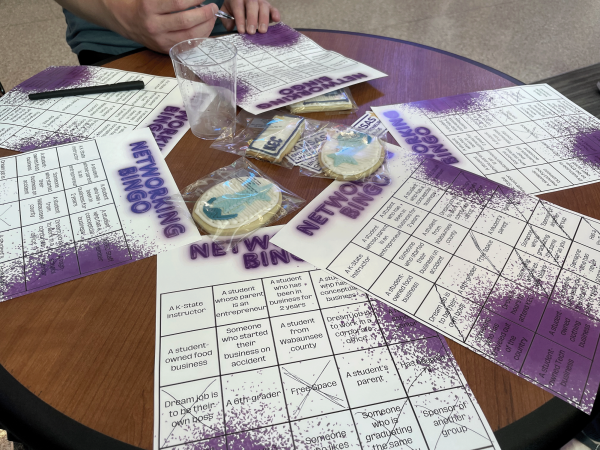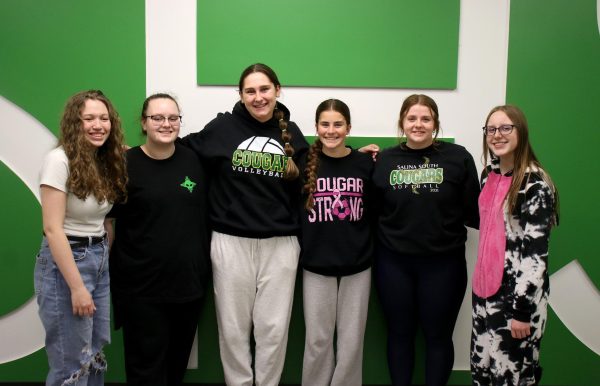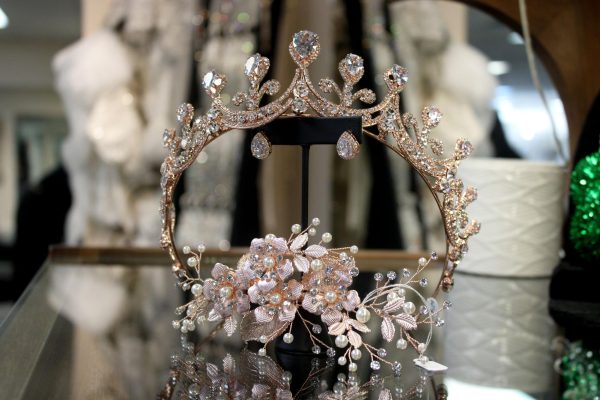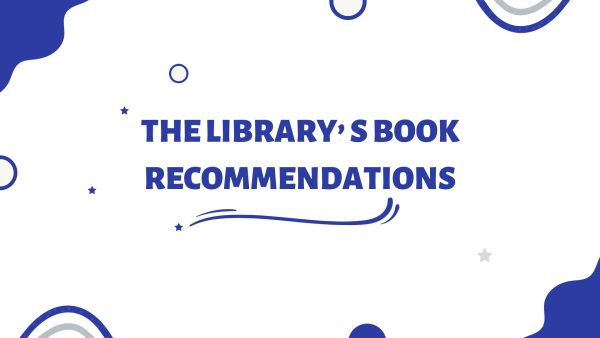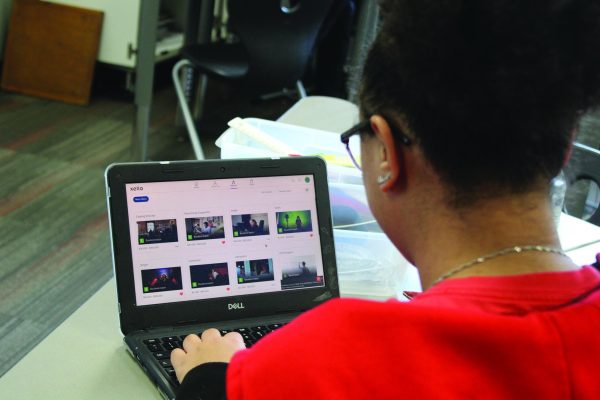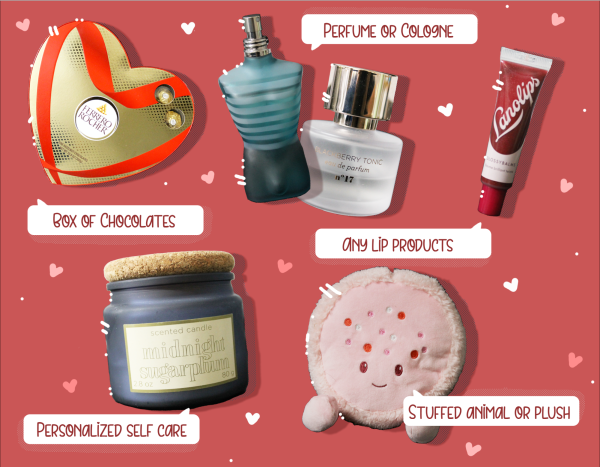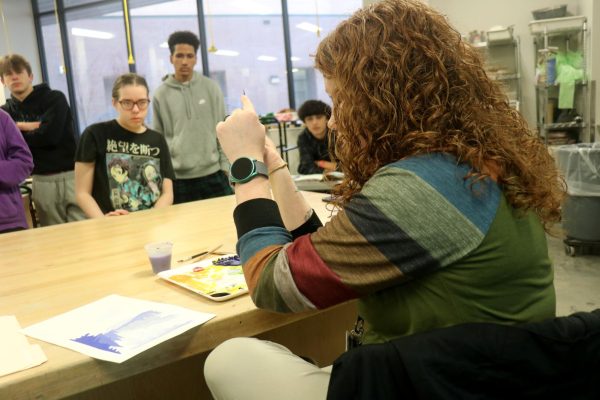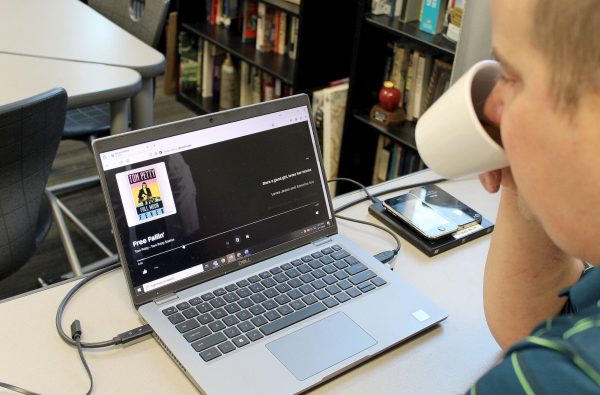Reacting to social media
How Salina South students are reacting to the negative aspects of online interactions
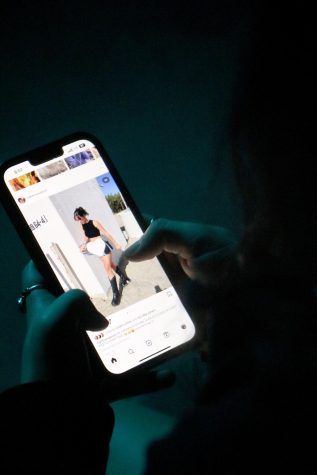
“I don’t know what I can do to stop online bullying because if I tell them to stop, they won’t listen. TikTok can make all of these rules, but when do people actually care?” junior Jessica Leyba said.
The creation of social media has promoted means of mass communication and interaction, which has helped foster connection and unity; however, these applications have also opened a gateway for people to explore new forms of negativity.
Teenagers across the U.S. are the prime victims of this negativity, facing cyberbullying, which can cause a psychological crisis that may harm their physical and social well-being.
For Leyba, she believes that nothing can resolve this issue. Some believe there is no issue at all.
Younger and older generations all have different perspectives and values when it comes to online social interaction
The Tripodium has gathered three students at Salina South High School to uncover how they’re handling the grim implications of social media.
REACTING: Tech Free
Most teenagers are associated with being addicted to social media platforms. However, senior Chase Toothman lives to fight that stereotype: he hasn’t used any social apps since he was seven.
“People are just so caught up in their digital worlds; nowadays, my phone’s turned off 12 hours out of the day,” Toothman said.
At a young age, he realized that social media affects everyone negatively and that it has created a group of people who crave immediate interactions.
To avoid harmful interactions, Toothman plans to stay off social media. But, despite his mindset, Toothman still believes that social media is good.
“I think it’s also a positive because we’ve connected the world. I could talk to anyone anywhere if I wanted to. And that’s a good thing, but I think we spend just a little too much time on it,” Toothman said.
REACTING: Through Perseverance
Junior Ashlyn Armstrong spends most of her time online using Snapchat, TikTok and Instagram.
On her Instagram page, Armstrong typically posts about special occasions such as birthdays and anniversaries, but behind this positive appearance is a dark history.
“I was stalked by someone for a little bit, so I deleted all my old accounts,” Armstrong said.
This event impacted her psychologically but eventually spread into her social life.
“I definitely withdrew from a lot of people because I didn’t know who I could trust,” Armstrong said.
“I didn’t know how this person found me because it was someone random. But it just took a lot of trust to start going on Instagram.”
Instead of abandoning social media entirely for the negativity that she and her friends have experienced, Armstrong is working towards building her trust in the apps.
“A lot of people say horrible things to other people on social media because they think they’re protected by a screen. But, I think as time progresses, social media will improve at tackling these situations,” Armstrong said.
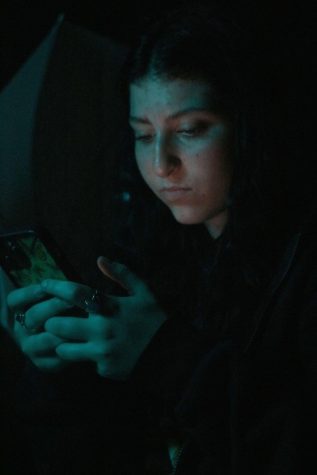
REACTING: With Art
“I mostly use social media for art, so I think it’s definitely impacted me in that way that I use it more for inspiration,” senior Devin Reidelberger said.
Reidelberger mainly uses Twitter and Discord for his interactions on social media. However, his experiences with platforms are, on the contrary, positive.
“I don’t really see it [social media] as a negative thing. I find a lot of artists that I like, and I kind of incorporate the things that they put in their art into mine,” Reidbelger said.
However, he predicts a quick negative change will occur as technology advances.
“I think that AI will be the downfall of every student, considering you can insert and manipulate someone’s voice,” Reidbelger said.
“So I think social media will get more negative when you can start faking everything literally.”
In the meantime, Reidbelger isn’t changing his social media habits but will continue using them as an outlet for inspiration.
VIDEO SCRIPT: Copy & Paste Link
https://docs.google.com/document/d/1YsLuOEPzKQZqrTU7t9jl3rysrrsFxytjG4NN7a5gyjY/edit

Francisco Guardado is a second-year staff member of Tripodium at South High Salina. In school he is involved in National Honor Society, Debate, and Forensics.

Jocelyn Hamilton ('25) is a second year Newspaper member and a first year yearbook member. This year she is both the online and design editor for the newspaper...

Lillian Ardis is a senior in high school. They do debate, forensics, and work at Dillons and Martinellis. They enjoy reading current news.


